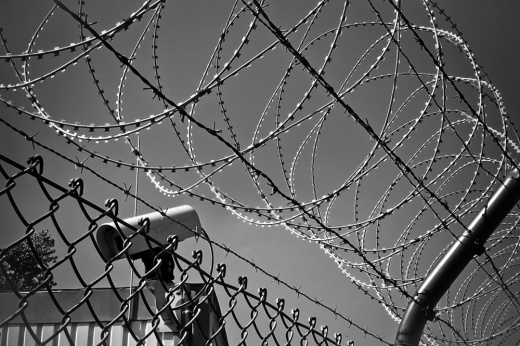The amended resolution passed with votes from Harris County Judge Lina Hidalgo, Precinct 1 Commissioner Rodney Ellis and Precinct 2 Commissioner Adrian Garcia. Precinct 3 Commissioner Tom Ramsey and Precinct 4 Commissioner Jack Cagle voted in support of the original resolution.
The original resolution backed Senate Bill 6's measures that would prevent defendants from being released on a personal bond—which allows them to go free without a fee—if police charged them with a violent offense. Defendants would also be barred from a pretrial release if, while released on bail, they committed a felony or any offense involving assault, deadly conduct, terroristic threat or disorderly conduct by firearm. However, these restrictions would not have affected monetary bonds, and in Harris County, there is no other way to get out of jail while awaiting trial.
Ramsey said he placed the item on the agenda as felonies committed by defendants out on bond are on the rise throughout Harris County.
"A discussion of a so-called bond pandemic ... does nothing to identify true causes or elevate solutions, and ... violent crimes by all offenders puts our community at risk," said Garcia, the former Harris County sheriff. "Harris County is compelled to respond [with] both immediate solutions, such as carrying the backlog in criminal courts and funding smart crime approaches and long-term solutions, such as addressing disparities that are a root cause of crime."
The original resolution would have also limited the power of charitable bail organizations that pay to free those too poor to post bond themselves. These organizations would not have been able pay to free defendants charged with violent offenses or those who have been convicted of an offense involving violence during the 10 years preceding the date of the defendant's arrest.
Ellis said the original resolution's bail bond system would have heavily favored those with money and posed a constitutional issue. Instead, Ellis said the court should work to clear the large backlog of criminal court cases to help reduce crime by putting those who are guilty behind bars and freeing the innocent. Hidalgo added that the original felony bail bond resolution would have only added to the long line of cases awaiting verdicts.
“If we believe in equal protection under the law, if somebody has money, and they can pay to get out, you shouldn't penalize someone who does not have money,” Ellis said.
Ellis suggested the county end cash bail entirely and allow judges or another independent entity to decide which defendants are the safest to release.
Several community members ranging from public defenders to political organizers expressed disapproval of Senate Bill 6, citing how the resolution would disproportionately affect Black and Hispanic communities who have already experienced a history of over-policing.
But residents also came to the stand to speak in favor of the bill. Virginia Mcintyre, a Harris County resident, said she supported the bill after experiencing an armed robbery inside her home in January.
“We weren't physically hurt, but I will tell you it was terrifying, very terrifying,” Mcintyre said. “I'll also tell you my fear quickly, immediately, turned to anger when I realized that these violent habitual criminals were getting arrested, and then put out on the streets almost immediately.
However, community members such as Gracie Armijo shared stories on how they pleaded guilty to crimes they did not commit, just so they could be released. Many shared they did not have the resources to wait for trial in jails.
“I know firsthand what it's like to be arrested and [not be able to] afford bail,” Armijo said. “I've also pleaded guilty because I didn't want to lose a job that I needed to take care of my family without realizing how it would impact my life moving forward. When a person can't afford to pay bail, the only way to get out of jail is to either plead guilty or go to trial. It's wrong, and it's unconstitutional.”





